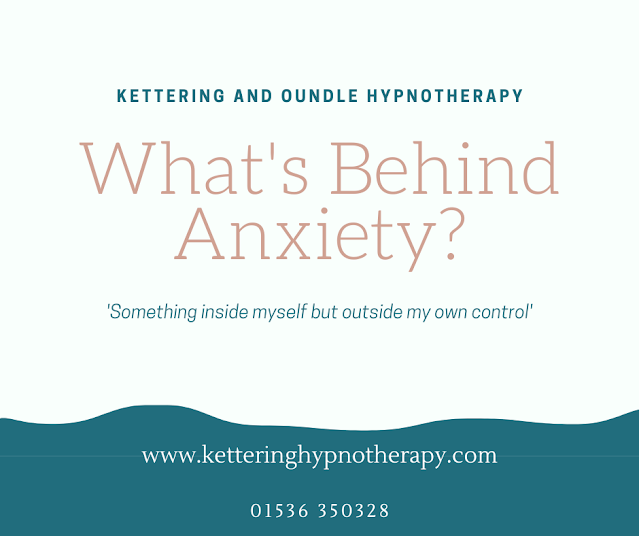What's Behind Anxiety?
Ever wondered why one person develops an anxiety condition and another doesn’t?
Some people have phobias while other’s don’t. One person may suffer terribly from depression, and the next person never has to fight against the same emotional numbness.
In years gone by, we might have described this as having trouble with their nerves or being highly strung, but that's a description of how they are, not WHY they are so. A description of symptoms is not an explanation.
If you were to ask the person suffering from anxiety WHY they had that problem, they might shrug their shoulders and say: “That’s just the way I am.” Others might explain: “I know where it all began. I was trapped in the cupboard under the stairs as a child and I was terrified."
If you were to ask why they think that caused the claustrophobia, they might look puzzled as if you hadn’t understood their explanation. Lots of people get stuck in cupboards or enclosed spaces when they are playing as children, do they all develop claustrophobia? Of course not. So why is this person different?
The Diathesis-Stress Model suggests we may develop a particular psychological problem because of an interaction between a predisposed vulnerability and stressful life events. We may become poorly when triggered by even everyday stresses.
What if past unpleasant experiences also make us vulnerable?
We have thousands of early life experiences, each one we interpret in the best way we can given the circumstances at the time. A large proportion of those experiences occurred when our understanding of the world was less advanced than now. None of us feels fear, anger, embarrassment, guilt or shame with the same intensity as a child.
We accumulate these experiences creating pressure within our minds. They make us vulnerable to life stresses. Minimal life stress means we are unlikely to be suffering terribly from anxiety. However, the greater the stress a person experiences, the more likely they will be vulnerable to developing symptoms.
If we were to ignore the past experiences of someone suffering from an emotional problem, we are only treating symptoms rather than what has made them vulnerable.
We accumulate these experiences creating pressure within our minds. They make us vulnerable to life stresses. Minimal life stress means we are unlikely to be suffering terribly from anxiety. However, the greater the stress a person experiences, the more likely they will be vulnerable to developing symptoms.
If we were to ignore the past experiences of someone suffering from an emotional problem, we are only treating symptoms rather than what has made them vulnerable.
How do we release the pressure created by these past experiences?
Hypnoanalysis aims to reduce the accumulation of childhood unhelpful experiences. By thinking through them as an adult, they are processed in a way they couldn't be the first time. Less accumulated psychological baggage means we are less vulnerable to developing anxieties, even when life stresses increase.While we cannot change what happened in the past, it is possible to change the negative effects it has on current behaviour.




Comments
Post a Comment